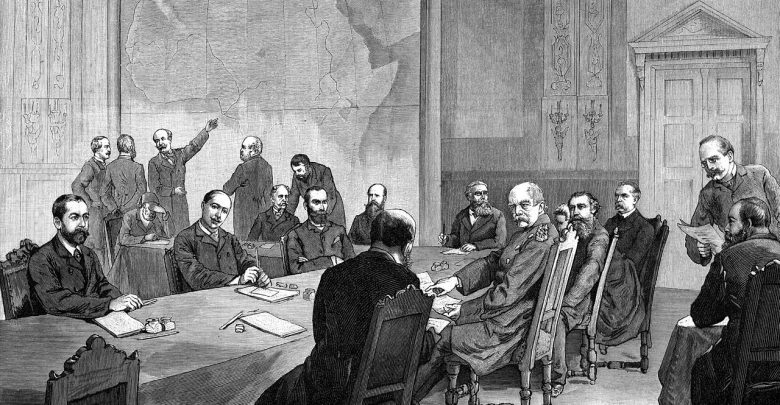
The Berlin Conference was organized to set basic standards about the colonization of Africa. Between 1885 and 1885, leaders from European countries agreed that the occupation of African territory should be based on efficient cooperation between world powers, and no single country could colonize the entire continent. In the following years, Europeans divided the entire continent, excluding the countries of Ethiopia and Libera. The continent was divided into spheres of influence by the following powers:
Great Britain
The British controlled the most populated regions of the African continent with a strong emphasis on South Africa. This country was particularly important to the British, as it contained valuable resources such as gold and diamonds. British forces expelled existing Dutch settlers in the country, coming in to conflict with the Boers who lived there. In the 1830s, the Boers founded two republics slightly father north, coming in to conflict with native Zulus for control of the land.
While the Dutch settlers were unable to cone to a resolution to their conflict with the Zulu nation, British forces entered the conflict eventually dismantling the Zulu empire. The British occupation of South Africa set the tone for racial segregation of the country that existed until the 1990s.
France
France claimed the largest colonial Empire in Africa, which covered over 3.5 million square miles. This territory included the entirety of the Sahara Desert. Their control of Algeria in North Africa in 1830 was followed by colonization of Morocco, Tunisia, West Africa and equatorial Africa. At the height of their power, France’s control of Africa was equal in territory to that of the United States.
In addition to physical territory, France also used the resource of manpower to fight for their country during the first World War. During this period, leaders of the colonial movement in French Africa were key players in making decisions about the next steps of the French Empire, notably the French invasion of Cameroon.
Germany
The German Colonial Empire was not as large as that of the French or British, but nonetheless significant. Entering the scramble for Africa fairly late, Germany claimed many of the leftover colonies that remained untouched by the preceding countries. Specifically, Germany was able establish commercial enterprises in West and East Africa, Samoan Islands and north eastern regions of New Guinea. The country lost ostensible power in Africa immediately following their involvement in World War I.
Italy
Alongside Germany, Italy entered the scramble for Africa far later than Great Britain and France, subsequently only able to take control of Libya, Italian Somaliland and Eritrea. Their attempts to gain full control of Ethiopia was met with strong resistance, and the Italian army was defeated fairly quickly.
The colonization of Africa by Imperial European powers was the beginning of many social problems for those on the continent, but eventually led to the independence and autonomous rule of the nations whose borders were arbitrarily created.


